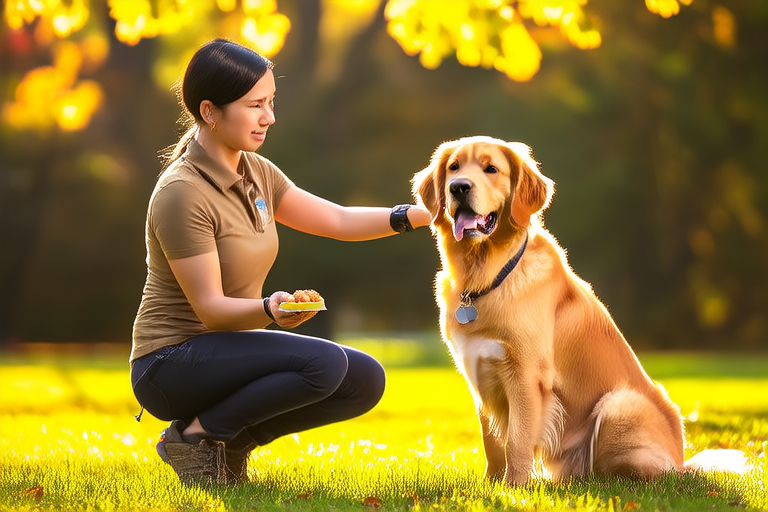Training Tips for Raising a Happy and Healthy Golden Retriever
Welcome to our comprehensive guide on how to raise a happy and healthy Golden Retriever. This article will cover essential training techniques, nutritional advice, exercise routines, behavioral guidance, socialization tips, common health issues prevention, and the importance of regular vet check-ups. Whether you’re a first-time owner or an experienced dog handler, these insights will help you provide the best care for your beloved pet.
Essential Training Techniques
Golden Retrievers are intelligent and eager to please, making them excellent candidates for training. Positive reinforcement is key when teaching commands like ‘sit’, ‘stay’, ‘come’, and ‘leave it’. For example, if your dog sits on command, reward him with treats and praise. This encourages good behavior and strengthens the bond between you and your pet.
Consistency is crucial in training. Use the same commands and hand signals each time you train your Golden Retriever. This helps your dog understand what is expected of them. Remember that puppies have short attention spans, so keep training sessions short but frequent.
Leash training is also important. Start by introducing your puppy to the leash indoors, allowing them to get used to wearing it. Gradually move outside for short walks, rewarding good behavior with treats and praise.
Nutritional Advice
A balanced diet is essential for maintaining your Golden Retriever’s health. Consult with your veterinarian about the best food options based on your dog’s age, weight, and activity level. High-quality commercial dog foods typically offer balanced nutrition, but some owners prefer home-cooked meals. If you choose this route, ensure that your dog receives all necessary nutrients, including proteins, fats, carbohydrates, vitamins, and minerals.
Golden Retrievers are prone to obesity, so monitor their calorie intake carefully. Avoid feeding table scraps and human food, as they can cause digestive upset and lead to weight gain. Treats should make up no more than 10% of your dog’s daily caloric intake.
Hydration is equally important. Always provide fresh, clean water for your Golden Retriever. A lack of water can lead to dehydration, which can be dangerous for dogs.
Exercise Routines
Golden Retrievers are energetic dogs that require regular physical activity to stay healthy and happy. Aim for at least one hour of exercise per day, including walks, runs, playtime, and interactive games. Swimming is another great option, especially during hot weather, as it provides low-impact exercise that is easy on joints.
In addition to physical exercise, mental stimulation is important. Puzzle toys and training sessions help keep your Golden Retriever mentally sharp and prevent boredom. Boredom can lead to destructive behaviors such as chewing on furniture or digging in the yard.
Always supervise your Golden Retriever during outdoor activities to ensure their safety. Keep them on a leash in public areas to avoid chasing wildlife or getting lost.
Behavioral Guidance
Barking and chewing are common behaviors in young Golden Retrievers. While these behaviors are natural, they can become problematic if not addressed properly. Teach your dog the ‘quiet’ command by rewarding them when they stop barking. For chewing, provide appropriate chew toys and redirect your dog’s attention to them whenever they start chewing on something they shouldn’t.
Socialization is crucial for preventing behavioral problems. Expose your Golden Retriever to different people, animals, environments, and situations from a young age. This helps them become confident and well-adjusted adults. Socialization should continue throughout your dog’s life through regular interaction with other dogs and people.
Positive reinforcement is effective for addressing unwanted behaviors. Ignore attention-seeking behaviors such as barking or jumping up, and instead reward calm and quiet behavior. Consistency is key in training, so ensure everyone in the household follows the same rules and uses the same commands.
